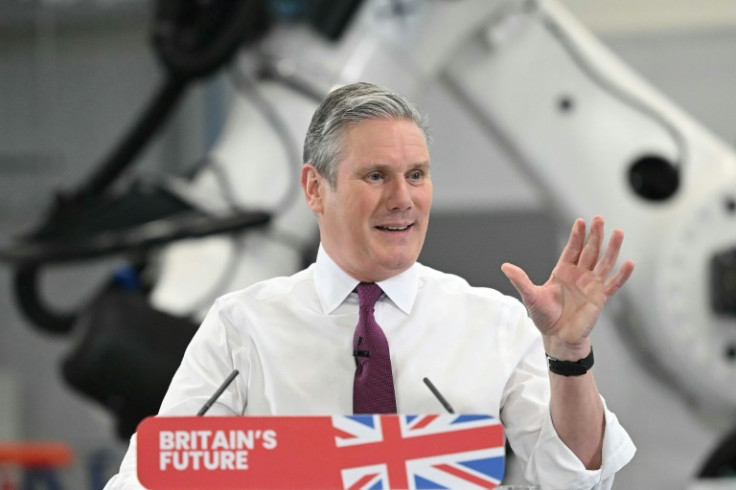
A senior Labour frontbencher has confirmed the party will backtrack on its commitment to spend £28bn a year on green investment schemes, after weeks of confusion.
Shadow Chancellor Rachel Reeves made the pledge at the party conference back in 2021, but since then it has been steadily scaled back.
First, it became an ambition, not a pledge. Last year Reeves said the target would only be hit in the second half of the parliament, and even then only if the party could fulfil its economic promise to have debt falling as a share of economic output by the end of a five-year period.
In recent weeks, Labour MPs have refused even to utter the figure, as party officials pondered over whether to scrap the commitment altogether.
Today, Darren Jones, the shadow chief secretary to the Treasury, said that Labour would decide how much to spend on environmental programmes once it got into government, depending on the individual schemes and the state of the economy.
The comments mark the first time a shadow minister has publicly acknowledged the party is no longer targeting the £28bn figure, as Jones said: "The number that we will get to, if we are in government, will be subject to two things.
"Firstly, it will be subject to the state of the economy. We know we're going to inherit a bad economy from the Conservatives, but we have plans to turn that around, and of course, we hope to be successful in doing that."
He added: "But it will also be subject to case-by-case business cases that if I'm the chief secretary to the Treasury in the next Labour government, I will have to sign off."
He said the amount spent "will depend on what the types of projects are, what the types of partnerships are with the private sector, and also our ability for the market, for our country, to deliver on those projects".
"The number will move around just as a matter of fact," he said. "It will depend on the strength of the economy - we will only invest when it's affordable – but also on a case-by-case basis working with the private sector."
Rumours have been circulating for weeks that the party leader, Keir Starmer, had decided to drop the commitment and focus instead on the party's promise to have clean power by 2030.
Asked earlier this month by the BBC's Laura Kuenssberg whether the promise would make it into the party's manifesto, Starmer said: "In the way I've just described, then yes, of course."
Jones's comments on Friday, however, reflect a new strategy by the party to drop the £28 billion figure and focus instead on the schemes they have already announced, including a home insulation rollout and a new publicly owned energy company.
Those schemes, however, add up to just under £10 billion a year, meaning the party's ambitions have now, in effect, been scaled back by two-thirds.
In an interview with Sky News, Reeves echoed this shift in strategy – asked 10 times by political editor Beth Rigby if the policy remained in place, the shadow chancellor pointed to increasing government debt and "the Tory damage to our economy", promising she would "never play fast and loose with the public finances" were she to take the keys to Number 11.
Asked again to acknowledge if Labour will not hit the £28 billion figure, Ms Reeves replied: "What I absolutely acknowledge is the state of the public finances... the Tory damage to our economy is very different from when we first set out our ambitions.
The Tories have long used the costly pledge to attack Labour's fiscal responsibility, following prime minister Rishi Sunak's decision to scrap a number of the government's green pledges.
With a UK general election looming, the country's main opposition Labour Party is starting to persuade business and financial sector leaders that it can be trusted to grow the economy.
Sunak's Conservative party trails badly behind Labour in polls before a national vote expected this year, owing to rapidly losing its reputation for economic competence.
Labour on Wednesday launched what it described as "ambitious proposals to drive competitiveness, streamline regulations and unlock billions of pounds of growth in financial services".
Keir Starmer's party was boosted this week by news that the chairman of British supermarket Iceland was switching his support to Labour from the Conservatives.
Richard Walker, a former Tory donor, wrote in the left-leaning Guardian newspaper that Labour was "the right choice for everyone in business who wants to see this country grow and prosper".
A recent poll by Opinium exposed that half of business leaders have said they would like to see the Labour Party win the next general election.







